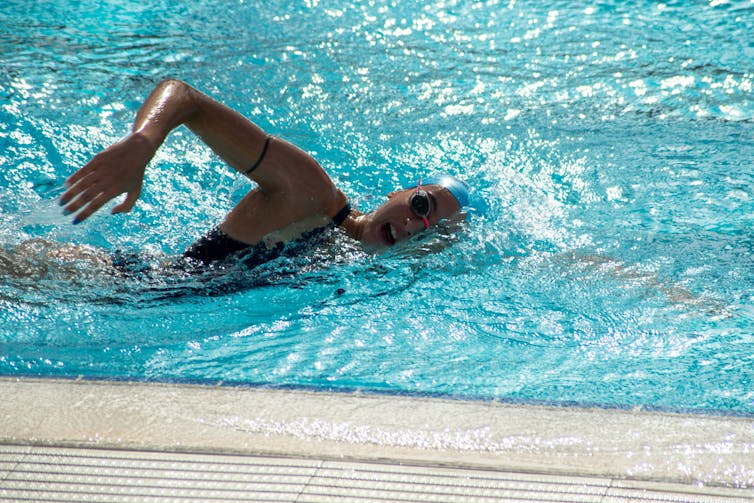Source: ForeignAffairs4
Source: The Conversation – Canada – By Kyle Rich, Associate Professor of Sport Management, Brock University
We are at a pivotal time for sport in Canada.
In August, Sport Canada released a National Sport Policy to guide sport in the country for the next decade. Through language such as “barrier-free sport” and recognition of “spaces and places” required to participate, the federal government signalled a broader approach to addressing sport participation that will impact more than just the sport clubs that have traditionally delivered sport programs.
Since 2020, a series of high-profile cases of harassment and abuse in hockey, swimming, gymnastics and other sports raised questions about safety. This was epitomized by Hockey Canada’s sexual assault scandal.
In 2023, advocates called on the federal government to launch a public inquiry into sport. Instead, the government chose to investigate through a Future of Sport in Canada Commission.
That commission recently released preliminary findings and recommendations. Importantly, the commission took a broad scope, considering not only abuse and harassment but also the broader structures and politics that shape the Canadian sport delivery system. Last week, the commission held a summit in Ottawa to discuss its findings and recommendations with survivors and stakeholders from across the country.
The decisions made by policymakers in the coming months and years could change the landscape of sport in important ways. But the sport system is shaped by long-standing rules, traditions and organizations that are deeply entrenched, making meaningful change difficult.
Collectively, our research has examined sport policy and governance in different parts of Canada since the formalization of federal sport policy in 2002. Some of us were also consulted by the Future of Sport Commission and participated in the summit.
In our current work, we are mapping the role of provincial and territorial governments in sport policy. Through this work, we’ve observed changes in sport policy across Canada, and we have thought a lot about what works and what doesn’t in different jurisdictions.
Key challenges in sport

(Unsplash)
The Future of Sport Commission highlighted some key issues within Canadian sport and made sweeping recommendations. These include a need for a new funding model for sport, alignment of policy across all levels of government, amalgamating sport organizations and the creation of a new centralized sport entity to oversee sport governance.
Many of these, however, have been noted by scholars and advocates for some time. While the goal of changing the sport system for the better is well-intentioned, it will not be an easy task. Here are a few reasons why.
Amateur sport programs and organizations in Canada remain largely volunteer run. These organizations have ingrained social and political practices and low capacity for change. In this context, governments and national and provincial/territorial sport organizations can lay out an amazing suite of policies and programs, but those delivering sport in communities may not take them up.
Simultaneously, public infrastructure for sport is aging, and municipalities and school boards are unable or unwilling to support increased demand. This has a negative impact on sport clubs that rely on this support.
Without meaningful changes to the environments that support clubs, they simply won’t be able to adapt initiatives to create safe environments or more welcoming spaces for new and existing members. In order to improve access to safe and healthy sport participation opportunities, provincial and municipal governments also need to be invested in these policy goals.
A rise of private equity investment is also impacting the Canadian sport landscape. We are in danger of losing youth sport to large commercial conglomerates, which could change how sports are accessed.
While commercial clubs can excel at offering high-performance training experiences, they are costly for participants and can segregate access to training and facilities based on an athlete’s income rather than their talent or potential.
Furthermore, commercial clubs can be unsanctioned and operate outside of established governance systems. If sport continues to be commercialized, it will only be accessible for those who can afford to pay, which will exacerbate existing inequities. And a rise in unsanctioned clubs will prevent attempts to foster safe sport environments through governance reforms from working.
Why change is difficult
As highlighted by the commission, change will be difficult, and requires time, investment and concerted effort. Change is particularly complicated in sport, as organizations at all levels work under the auspices of international organizations that operate with an unusual amount of autonomy.
This means that sport organizations in Canada may be faced with multiple and competing ideas about how they should operate, and what they can afford, now and in the future.
Change will not be easy. It will require buy-in and alignment of policy from all orders of government. Change will be particularly difficult for organizations that are struggling to recruit and retain volunteer coaches and board members. In those cases, it’s easier to focus on the status quo than to change.
Furthermore, public opinion and social norms about sport needs to keep pace with change. Canadians across the country need to think about what they want sport to do for their communities and themselves, and how they want sport to achieve those goals.
The Canadian government has repeatedly used sports imagery like “elbows up” recently in light of tariffs from the United States. Based on the commission’s recommendations, the federal government has an opportunity to show that kind of leadership by investing in change so the sport system works for all Canadians.
![]()
Kyle Rich receives funding from the Social Sciences and Humanities Research Council of Canada.
Audrey R. Giles receives funding from the Social Sciences and Humanities Research Council of Canada.
Jonathon Edwards receives funding from the Social Sciences and Humanities Research Council of Canada.
Larena Hoeber receives funding from the Social Sciences and Humanities Research Council of Canada.
– ref. The Canadian government must take action following future of sport commission – https://theconversation.com/the-canadian-government-must-take-action-following-future-of-sport-commission-264103
